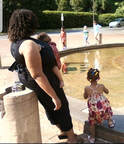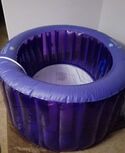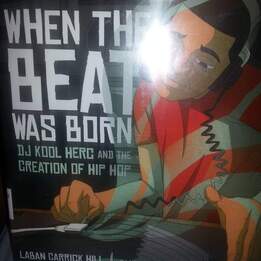|
6/21/2020 0 Comments Wait Until Your Father Comes HomeMy father wrote this essay for Father's Day in 1984. It was first published in our local newspaper, Erie Times-News, in honor of his late father, Charley J. Pittman (1922-1975).  For Mother's Day, I wrote about my mom. For Father's Day, I guess it’s only fair that I write about my dad. Besides, that’s the way Dad would have liked it. He advocated for equal rights, especially when there was a Pittman involved. Charley James Pittman was the backbone in the Pittman family and no one ever questioned his role as leader. Dad was tough because he had to be. But he was far from being perfect - because I believe that’s the way he wanted to be. Laying Down the Law He set tough standards for his children and expected us to live up to them. He desperately wanted our lives to be better than the one he had to endure. Born and raised in Red Springs, NC as one of six children, he was forced to drop out of school in eighth grade to help support his family. After becoming a Master Sergeant in the Army during World War II, he married my mom and went to work as a steelworker in Baltimore. There, he worked for 29 years before dying of cancer at the age of 53 in 1975. You see, my father was no one special. He had no degrees or titles. All he knew was what he wanted for his family -- and what he didn’t want them to be. He knew the environment that we grew up in didn’t lend itself to producing successful people. He showed us first hand what life in the streets was all about and what heavy drinking could do to your family life. His philosophy definitely was “Do as I say, not as I do.” He expected excellence from his children and got it. If we didn’t achieve what we were supposed to, the worst words in the world coming from Mom were, “Wait until your father comes home." Dad was not the type who accepted excuses. I remember once how, while playing first base in a critical baseball game, I missed a low throw on the back end of a double-play that almost cost us the game. After making an excuse about missing the throw, my dad said, “Charles, the ball never gets too low to catch -- now go to bat and do something about that error.” Wouldn’t you know it, I hit the game-winning home run in my next at bat. Dad supported all of our sports activities and came to almost every game. He offered encouragement when times were tough. When I was a freshman at Penn State, I called home one night complaining about how tough things were at school and how the coaches were not treating me fairly. I told my mom I was coming home from school and like a caring mom, she said, “Okay.” But Dad got on the phone and said, “NO!” - emphatically. “Do you want to work in a steel mill all your life?” he asked. “You stay there.” He went on, “If the other players can stay there, so can you.” Thanks to Dad, I stuck it out. A Tough Leader His methods were different. I believe to this day that he convinced us of all the wrongs of the streets. He decided one day never to drink, smoke or gamble again. He settled down to push us all through college and encouraged us all to pursue athletics to its fullest. Because fathers then were different from what they are now, we never really got a chance to tell Dad thanks. It seemed, then, not to be permissible for fathers to show affection or emotion. They knew their roles as head of the household, and most of them played it well. I’m so very thankful my dad did. And to Tony, Kira and Mauresa - Thanks for the breakfast on Father’s Day. Don’t worry about how it looked, because it really tasted good. And Kira, thanks for your missing tooth. It was awfully big of you to give it to me for Father’s Day rather than save it for the Tooth Fairy.
0 Comments
6/15/2020 0 Comments Babywearing It is Black Babywearing Week. Anthropologists believe one of the very first tools developed by humans was the infant carrier. Constructed from animal skin and plants, babywearing allowed parents to have their hands free while foraging for food. It wasn’t until the 1930s with mass production, interchangeable parts, and cheaper material that strollers became widely used in the United States to transport babies. Babywearing became fashionable again when a nurse traveled to West Africa while serving in the Peace Corps and noticed people wearing babies in a soft carrier with straps. The design became commercialized in the US, and babywearing began a resurgence in this country. Personally, I have always worn my babies. My babies enjoyed being close to me where they could rest their heads on my chest and hear the familiar sound of my heart beating -- the sound they had heard for months while developing in utero. I could see my baby was more peaceful too, calm and relaxed while in the carrier. I also felt less anxious. Medical studies show babies who are worn cry less and the practice may ease postpartum depression and anxiety in parents. I noticed something else. babywearing allowed my baby to communicate with me on a deeper level. I could feel my baby squirm when she needed to use the potty. That was how we began infant potty learning, eliminating the need for diapers. I still have a collection of slings, moby wraps, and a mei tai. My children, teenagers now, are well beyond the years of babywearing, but I still hold on to those carriers that promoted a closeness that still exists to this day.  It is very important to be intentional about building a birth team. You want to surround yourself with skill and people you trust. Ask questions that are important to you. If you don't know which questions are important, you're in luck! Here is a list of essential questions to ask a midwife: * Tell me about your experience and training. Did you attend midwifery school and complete a certification? Did you learn through an apprentice model? * How do you handle complications during pregnancy or birth? What kinds of complications would risk me out of home birth? * What happens if I am no longer a good candidate for homebirth? What is your refund policy? * Can you handle emergencies? In the event of an emergency, what would be your role? Do you remain with me if I need to transfer to a hospital? * What kind of medical equipment do you bring with you? Are you trained in the use of the equipment? * Do you have an assistant? Will I meet your assistant(s)? Who would be present for my child's birth? * Do you have backup? What happens if you're injured, ill, at another birth, out of town, or otherwise not available? * How do you handle unexpected events like preterm labor or breech presentation? * What are your fees? How are those fees structured? Do you have a cancellation/refund policy? * What is included in your fee? Labs? Tests? Pool? Birth kit? I suggest you interview 2-4 midwives before making a decision. Home birth is a safe choice for low risk pregnancies. To discuss how our team of doulas can help you plan for a home birth in the Charlotte area, please schedule a free consultation.
5/18/2020 1 Comment Cooking Fun! What could be more fun on a spring day than a fruit plate that looks like a tropical island? To make this fun treat, simply cut a banana in half. Then cut each half into small slices. For the palm fronds, peel 4 kiwis and cut them into wedges. Arrange the kiwi wedges around the tops of the banana slices. Finally, peel and separate an orange to create beautiful sand dunes.  This essay first appeared in the Erie Daily Times Newspaper in 1983. It is written by my father, Charles Pittman. Mothers are indeed something special, and every Mother’s Day I try to make a trip back home to spend that special day with my mother. This year, the plans were all set but a myriad of things cropped up at the last minute that prevented me from being in Baltimore. Great Memories It seemed awkward not being with my mom on her day, but I used the occasion to reflect on events that happened in my life that made my mother seem extra special. Growing up in Baltimore was nothing special, yet in a sense it was - because mom always made it seem that way. She constantly impressed upon the Pittman kids that they were different - not better, but different. While we did the normal things that kids do, like play all sports, skate in the street, play cards, stick ball and step ball (Baltimore was noted for its marble steps - you’d get a rubber ball and while one player bounced it off the steps, another would hit it back toward the house). We had our rules for when we could play and for how long. We could never play cards or any type of ball on Sundays, and during the long summer vacations, it was a must that our day include reading a few pages from any book. It was also a must that we take a nap or just come into the house to spend some time with mom. The other kids in the neighborhood never understood why the Pittmans had to take naps or read books, or why we couldn’t just run aimlessly up and down the alleys. I might add that the Pittman children didn’t understand either. It was just that mom wanted it that way, and we seldom questioned her reasons. Her favorite line whenever we had the nerve to question was, “You just can’t do what the other kids do because I know what’s best for you.” I don’t mean to imply that was a tough disciplinarian. In fact, she was just the opposite. She was a caring and loving mom who just knew what she wanted for her children. Learning By Example She often talked about her younger days when she grew up in Lumberton, NC and how she graduated as valedictorian from high school. But she never put any pressure on us to perform in school. However, she did manage to raise all honor students, a National Merit Scholarship finalist and a valedictorian. Mom was always a very pretty lady with long hair, and when we were younger we’d take turns combing and styling it. This was her way of letting us stay close to her, hoping that we’d continue to grow up to emulate her. I think that all the kids would agree that mom knew her role and played it very well. The family consisted of three boys and a girl, and all the boys had athletic inclinations. My two brothers played baseball and I played football. My father, who was a real sportsman, took credit for this. While he actively pursued and encouraged our athletic careers, mom never watched any of us play because she feared we’d get hurt or take losing too seriously. I still remember the first time she came to watch me play in college. It was actually the first time she’d come to see any game I played in. I didn’t get into the game until the second half and when I did, I never touched the ball. I was so disappointed because I never had a chance to show her what her son could do. As a result, I was the last one out of the locker room after the game. But when we got together afterwards, she consoled me only the way a mother can do. She said, “Well, at least you didn’t get hurt. Just think, you still have three more years to show me you can play. Just be patient. You’ll get your turn.” Right Again She was right again. Patience paid off and she watched me perform on many occasions at Penn State. Whenever she was in the stands, it gave me a little more incentive to play well. Mom never saw me play professionally because she could sense, as only a mother could, the disappointment I was experiencing as a pro player. When I finally decided my playing days were over, she probably experienced a relief that I was never seriously injured during my years of playing. I’m sure that during the many times you see an athlete say, “Hi Mom” after making a great play on national TV, you wonder why they salute their moms instead of their dads. Well, I can answer it the only way I know. While all moms are special, moms with children who are athletes are even more special. Mothers keep meals warm because of a late game or practice. They organize carpools and wash and clean uniform after uniform. You can’t even count the physical aches and pains they nurse. And if, by chance, the team loses because of your error or fumble, mothers just don’t seem to let it bother them. They manage to keep it all in perspective. And I guess for no other reason, my mother has always managed to help me through the years to keep everything in perspective. Even now, when times get sort of tough, she still manages to find the right solution to make life better. And even though I didn’t get to see my mother this Mother’s Day, it was quite nice just to take time to reminisce about the things we often take for granted. Somehow, no matter how old children get, mothers never stop being mothers. And for this I am thankful. Happy Mother’s Day, Mom. |
AuthorKira Kimble is a doula trainer, certified doula and doula mentor. She is the owner of MINE-R-T Doula Company in Charlotte, NC Archives
March 2022
CategoriesAll Books Breastfeeding Cooking Doula Health Parenting Placenta |

 RSS Feed
RSS Feed